Dennis Bovell's fingerprints are all over British music of the past five decades, from his pioneering work in lovers rock to his productions for post-punk bands like The Slits and The Pop Group. As both musician and producer, he helped shape the sound of reggae in the UK through his band Matumbi, his sound system experience, and countless hours behind the mixing desk. These contributions earned him an MBE in 2021, though he remains more focused on his next project than any past accolades.
The new compilation Sufferer Sounds draws from Bovell's rich catalog of dub, roots, and lovers rock recordings made between 1976 and 1980. The collection arose from conversations at a reggae night in Walthamstow, where Bovell connected with folks from the Disciples label who were hunting down his rare tracks. After years of crate-digging and restoration work, these songs have been lovingly remastered, bringing new life to music from Bovell's most prolific period.
When we spoke, Bovell was in his studio working on new dub mixes, surrounded by the kind of equipment that has defined his experimental approach since the 1970s. Despite the retrospective nature of Sufferer Sounds, he showed little inclination to look back, preferring to discuss his current projects and the endless possibilities still to be found in manipulating frequencies and hunting for the next sound.
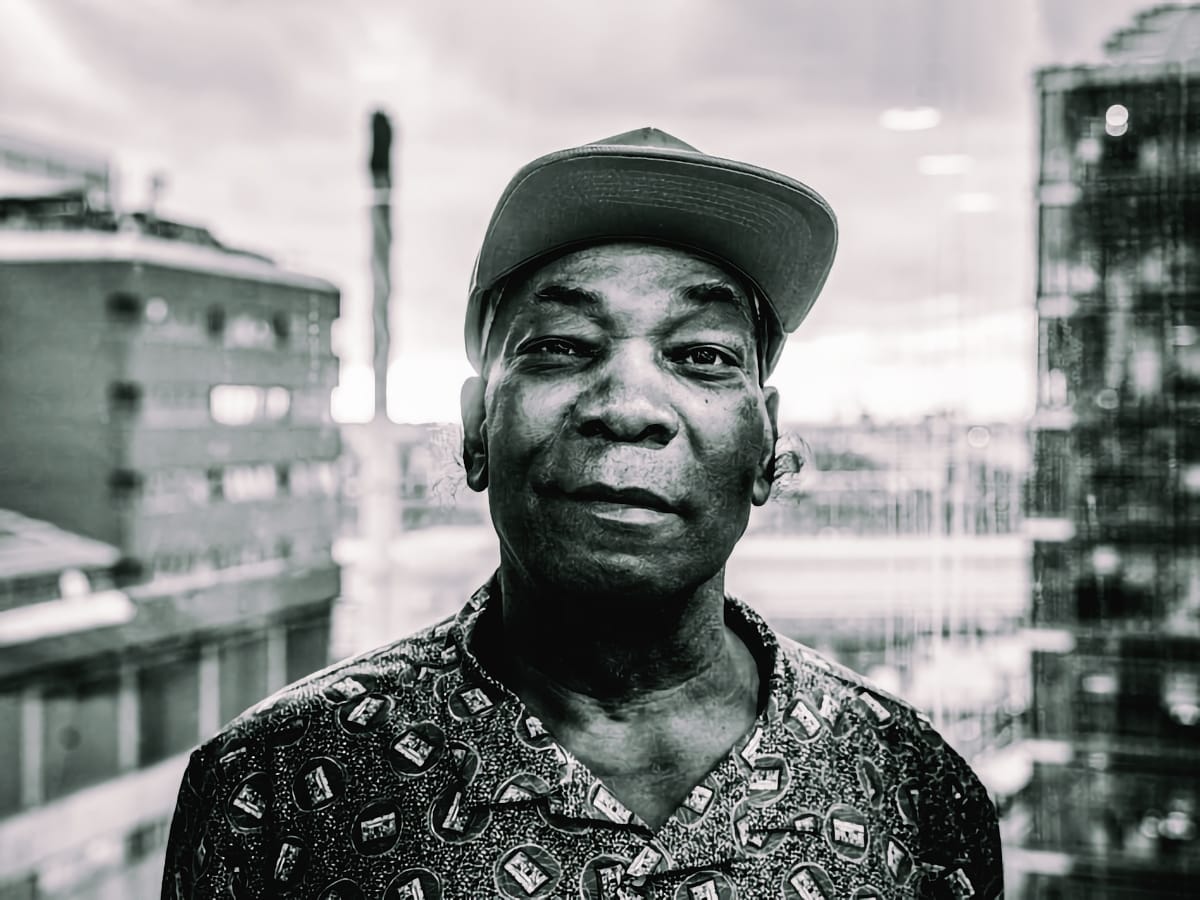
All Frequencies are Good
Lawrence Peryer: Dennis, how are you? Are you putting down some dubplates? What's going on there?
Dennis Bovell: I'm good. I'm in the studio right now. I'm mixing some dubs.
Lawrence: Lovely. I was just listening to the Joe Gibbs African Dub All-Mighty Chapter 3 record with Errol Thompson. What a record. Incredible.
Dennis: Yeah. Matumbi didn't want me to be in the producer's seat; they just wanted me to play guitar and write songs. On the strength of that record, I said there's only one person I'm not going to be in the producer's seat for: Errol Thompson. Our manager then said, "Yeah, I know him." I said, "Well, get him over here!" And we got him over to the UK to assist on the Point of View album.
I loved African Dub Chapter One, Chapter Two, and Chapter Three when I played the sound system. It was evident that he worked with Dennis Brown—and Dennis Brown was a friend of mine—I was heavily into that. So, I wanted to learn about Errol Thompson's recording technique. If I brought him to the UK, I could see firsthand what he did and how he selected frequencies. I learned a lot from that guy.
Lawrence: Tell me a little bit about running sound systems. What did you learn from playing live that you could bring into the studio? I'd imagine you're playing with different frequencies and getting immediate feedback from people.
Dennis: I straddled both lanes [studio and live] because I quickly learned that the way the sound system sounded in public, in the dance, was largely due to the recorded frequencies. I played the sound system and would be able to hear what the frequencies sounded like once you released them from the studio. If you release a not-so-good frequency, it will reproduce not so well, so I had to learn the dos and don'ts of frequency selecting and working with the sound system. When I got into the studio, I repeated it similarly or in a way that I felt was okay.
Lawrence: What's a not-so-good frequency?
Dennis: All frequencies are good, but it depends on the dosage. If you get too much, it will hurt your ears. Frequencies are adequately described as "kill-o-hurtz"—the higher they go, the more headache they give you. The lower down they go, the more gravel you get.
Lawrence: The period covered on Sufferer Sounds is so rich. What was happening for you that you were firing on all cylinders?
Dennis: What was happening? I was pretty much working in three different studios, raising a family of three boys and three girls, and sending them to university, making sure that they were better qualified than me in the world of books. Bringing home the turkey. [laughter]
Lawrence: I would imagine that, with that many kids, the studio was a little bit of a sanctuary.
Dennis: I often took them there with me to watch me work. It's what I had to endure.
My eldest son is known as Bobby Bovell, and he's got a career of his own. My youngest daughter has a career of her own. My others—one's a lawyer and the other's a psychiatrist.
Lawrence: Did you try to talk the kids out of going into music?
Dennis: No, I let them. If they wanted to, they could come with me. But my eldest daughter, I talked her into becoming a lawyer because there were a few people in the music business I wanted to have a word with, and she was going to be representing her legacy.
Lawrence: That's interesting.
Dennis: It's a lot to carry, yes, but when your eldest daughter's a lawyer, you don't have to worry much.
Lawrence: If things don't go well with the lawyer, you've got the psychiatrist. [laughter]
Dennis: I'm well covered.
The Engineer's Solace
Lawrence: When I think of a dub producer, I get this idea of the mad scientist in his laboratory. I think Lee "Scratch" Perry added a lot to that perception for people, including this idea of secret techniques and tricks.
Dennis: To be an experimenter, you must be willing to experiment, or you'll get nowhere—you'll discover nothing. You have to tempt fate, as it were. I've often looked at dub as the engineer's solace. Once you combine all the frequencies and get what the singer wants, you can mash it up. And you can mash it up in many different ways.
Lawrence: Is that the goal of a dub producer—are you always looking to innovate?
Dennis: Yeah, you gotta find something that someone's gonna latch onto and go, "Yeah, I ain't never heard that before." In the album I'm doing at the moment, I did some tape runs where I've got this machine called the Ninja, and it affords me to stop the music and play backward or forwards at the same time as it's running. As it goes forward, I can go, "brrrrrrrrrrrrrrrr brrubyuhhh," and go ahead of itself in the Ninja machine. It's a space-age piece of equipment. It's fast becoming my best friend.
Lawrence: So you're on the hunt. Are you still looking for new boxes to plug into and all that?
Dennis: Of course. You have to if you want to innovate and bring sound to the table. The groundbreaker was King Tubby. And if you want to enter the arena where he's been, you better be good and have ideas of manipulating frequency.
Lawrence: The King Tubby recordings never get old.
Dennis: For the last seven years, I've been doing a show in honor of King Tubby's at the Jazz Café in London. It's called A Brief History of King Tubby because I can't do it all night, but I can do some selected cuts. And for the last seven years, I've been peeling off cuts that people ain't heard, that I've been fortunate enough to get ahold of.
Lawrence: So, as somebody who's so contemporary, future-forward, and always moving, how do you feel about looking back?
Dennis: I never look back.
Lawrence: So, is Sufferer Sounds more of a project you let happen than what you had to do yourself?
Dennis: Yeah, it happened to me, and the deeper I got into it, I discovered more things that I liked, more things that I wanted to do, things I wanted to elaborate on, and things that I didn't care much for, but things all the same.
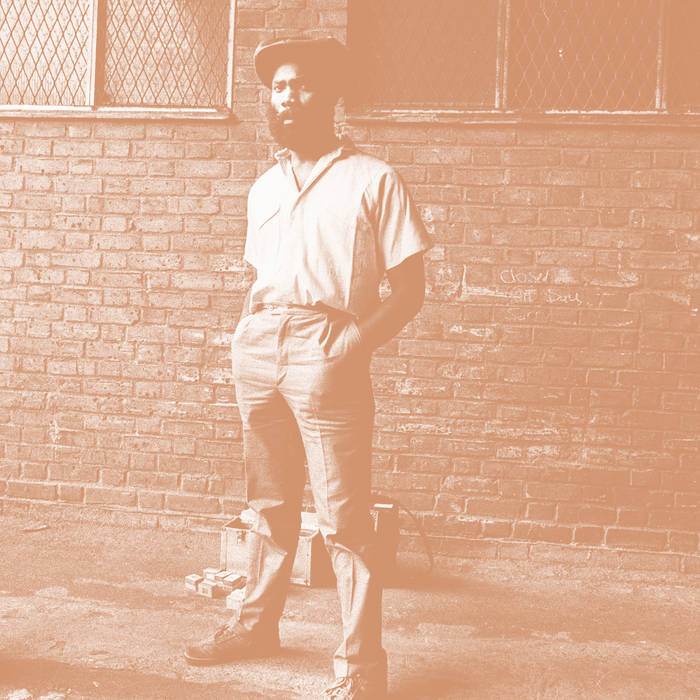
'You Sing, I'll Play'
Lawrence: I was struck by the dub of "Silly Games." It's not a track I would have even thought of as a contender for a version, but Dennis, it is beautiful.
Dennis: Oh, thank you. When I created that track, my first intention was to dethrone my great friend Sly Dunbar as the greatest reggae drummer and then get away from two-chord reggae. I wanted to write songs in the same vein as the Beatles, people who did creative stuff. The Doobie Brothers or the Brothers Johnson, who did songs full of chords, Herbie Hancock—people like that, they put chords in monumental songs. And I wanted to do the same thing with reggae. I hit upon doing that track, "Silly Games," and it works.
Lawrence: Who are some of your favorite singers?
Dennis: Dennis Brown, for a start. Gregory Isaacs, John Holt, Sugar Minott, Jackie Mittoo, Jackie Edwards, Lord Creator.
Lawrence: Did you ever record with Justin Hinds? I ask because I could hear his voice with your sound.
Dennis: No, but I met him just before he passed away. He came to the UK and was affiliated with the carers group of Birmingham and Solihull Mental Health, where I officiated. I canvassed the government to get money for these people to buy them a sound system and to take them on a yearly excursion up and down the river. Justin Hinds was our special guest one year, so I had plenty of chances to speak to him. He was truly a great man.
Lawrence: You've done so much work outside of reggae. How do you approach these projects?
Dennis: I say yes if I'm into it. If somebody comes up with something and I think, "Why didn't I think of that?" I want to be a part of it. Groups like the Thompson Twins, The Slits, or The Pop Group approached me.
Not many people knew about Viola Wills, but she came to the UK to do backup work for Joe Cocker. That song he had, a Beatles song he made a cover of, "With a Little Help from My Friends," she was on that. Later, a friend of mine who was a nightclub owner said, "I think you should do a song with Viola." And I was like, "Yeah, but—" and he said, "You know, I have a favorite song, 'Gonna Get Along Without You Now.'" And I was like, "Man, that song is so old! That song's older than my grandparents, dude." He said, "Yeah, that's why we should rehash it right now and do it in a disco style." And my keyboard player went, "Yeah!" Because that was the popular disco thing. So, we grabbed hold of it.
Quite soon, we were looking at a number five in the national chart with Viola Wills's "Gonna Get Along Without You Now." And then we made an album with Viola. And when she wanted to do a version of the Gordon Lightfoot song, "If You Could Read My Mind." I jumped at that because that was one of my favorite tunes. And to do a disco version of that was like, "Come on girl, you sing, I'll play."
Lawrence: That's great. I was listening to "Riot in Lagos" earlier as well.
Dennis: Ryuichi [Sakamoto]. My friend Don Letts had been to Japan with The Clash and came back saying to me, "Sakamoto wanted your number." And I said, "Yeah, give it to him, man. Are you kidding? I'm a YMO [Yellow Magic Orchestra] fan. If the man wants to work with me, send him here." And he went, "Thank you." I go, "Why did you start thanking me?" He said, "Because I already gave him your number. I was just asking you after the event." And I was like, "Letts ... good thing I like you." [laughter]
Lawrence: Is there one that got away in terms of an artist you would have liked to have produced or worked with that you couldn't nail down, or the opportunity didn't come?
Dennis: Paul McCartney. I'm waiting for a call, Paul. I'm also waiting for a call from Stevie [Wonder]. Just call me. Let's do something.
Lawrence: McCartney would be an interesting one.
Dennis: I'm a longtime fan of his, and I'd like to turn over a few of his tunes.
Lawrence: Oh, really? Have him send the masters, and you play a little with the tapes?
Dennis: That's right. Unfortunately, my friend George [Martin], the fifth Beatle, passed away. But when I was working with Sakamoto, I called him. I said, "Mr. Martin, please, sir, I need to have some Dolbys" because I was going to be running at 30 IPS and I wanted Dolbys to quiet the tape noise, and I didn't have any Dolbys. So, we went to George Martin and asked, "Can I borrow?" He said, "You mean rent?" I was like, "Yeah!" So, we rented the Dolbys to work on Sakamoto's stuff.
My studio had not yet been completely built. And Sakamoto was excited about that. He said, "I heard you're building a studio." I'm like, "Yeah, but it's not finished yet." And he goes, "You missed the point. I want to use your studio before you do." So, I was like, "That's a strange request. But okay, alright with that." And the first recording I did in my studio was "Riot in Lagos."
Lawrence: That shows much love and respect that he didn't even want you to work out the kinks on another project. He wanted to be the first. That's a beautiful gesture.
Dennis: I received it as such.
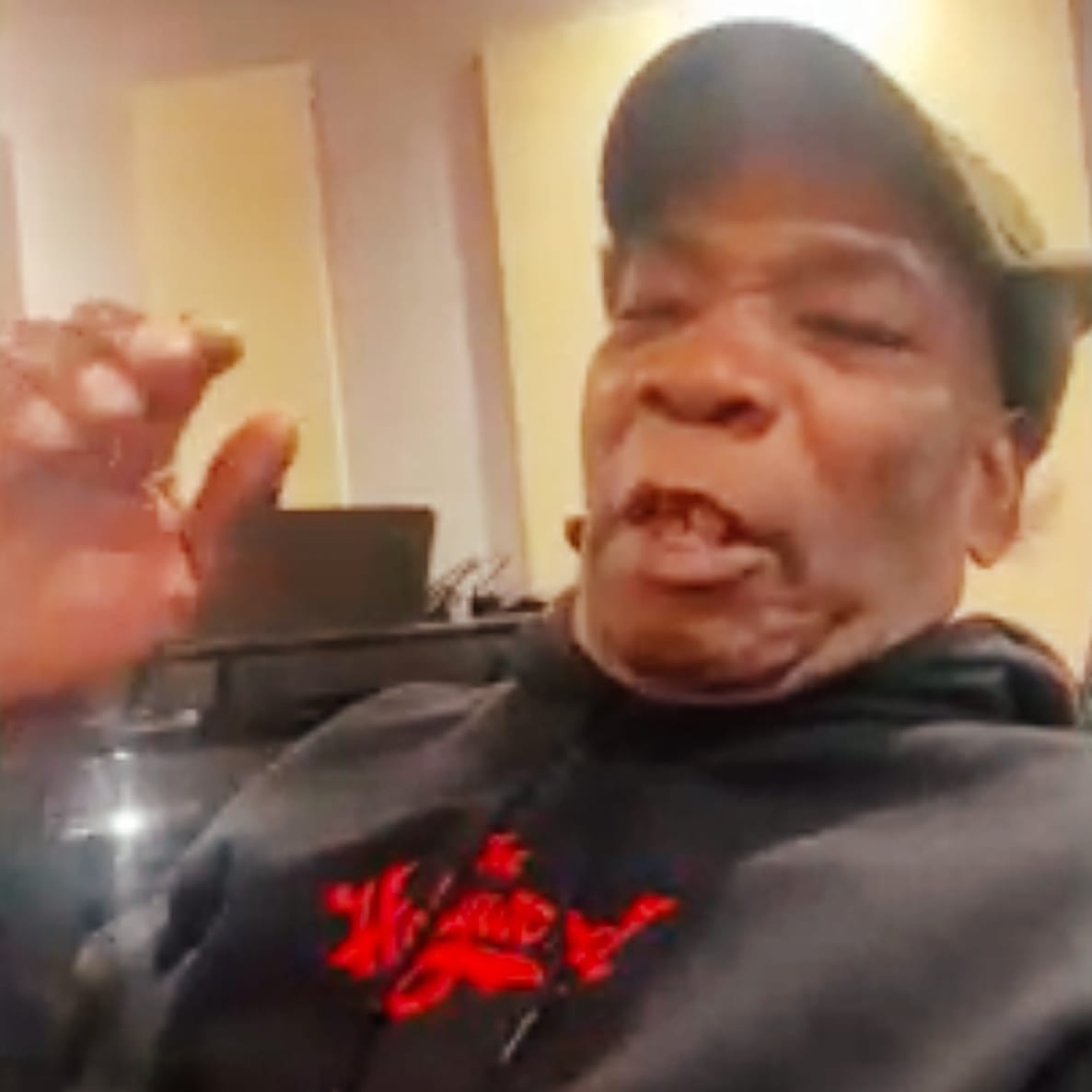
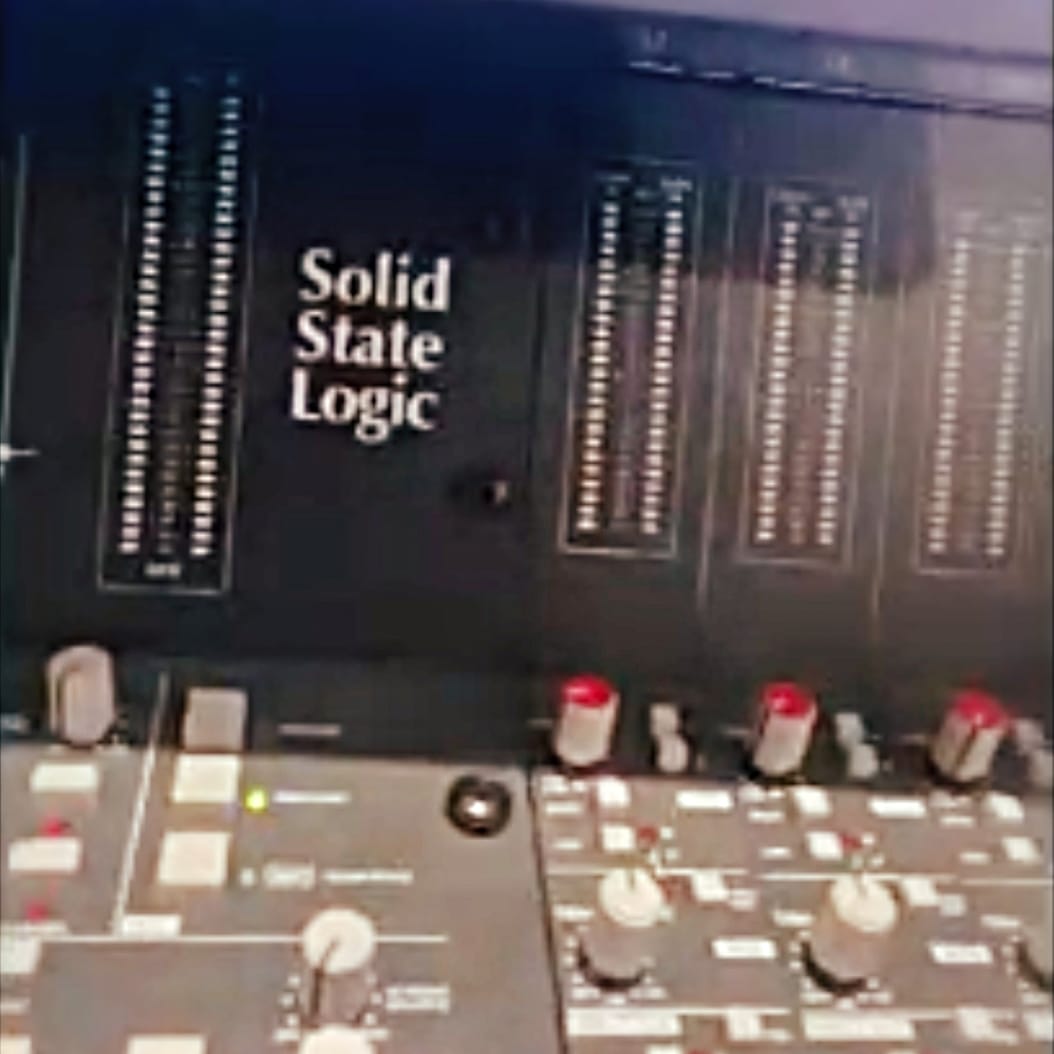
Dennis Bovell in his studio chair during our chat, and a peek at his beloved SSL board.
'I May Be a Good Rock Climber'
Lawrence: Something else that strikes me about the new collection is the sound—it has a classic sound, but it sounds so fresh and modern.
Dennis: German technology. We cut the masters in Germany with a classical cutter, someone licensed to cut classical music. Not everybody can cut classical music—it takes special care and equipment. And when Disciple said, "Yo, we're going to master it in Germany," I said, "Yeah!"
The first time I worked in Kraftwerk's studio in Germany, I recorded with some girls called Saâda Bonaire in the seventies. They had an SSL, and that's a British desk, but there were none of them in England. Kraftwerk had one. They were among the first people to buy one because they realized what a piece of machinery it was. And so, I went over there to work on it.
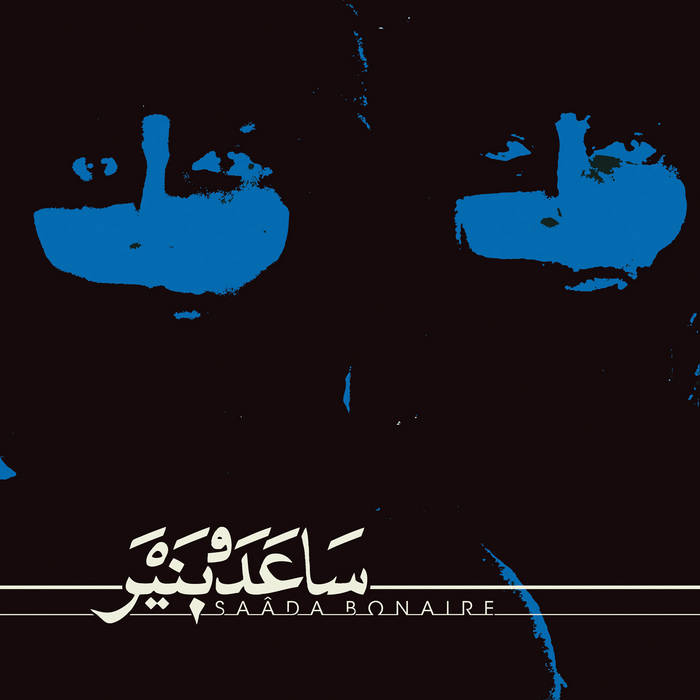
Lawrence: It makes a lot of sense that somebody who knows how to work with classical is a good choice because of the crazy dynamic range in both classical and dub. With this record being one that looks back almost fifty years, do you recognize the version of you who made these tracks?
Dennis: I certainly recognize that young guy trying to do what he wanted to do—I've gotten this far because that was me. Back in the day, many engineers would frown upon my frequency selection and say, "You can't do that." And I'd go, "That's why I'm going to do it." "You shouldn't do that." "That's why I want to do it." Because if I fall down, let me fall down on my own accord. Don't let me fall down because someone says, "Oh, there's a precipice there." I may be a good rock climber. [laughter]
Lawrence: And what would falling down mean?
Dennis: You can fall down at the final stage. It's like running up to the finish line and falling down before you cross the line, and the guy behind you becomes the winner. You can fall down because the person charged with cutting the master can misunderstand what you intended and then put a compressor on you, dull a sharp frequency, or sharpen a frequency you need to be dull. That's why I've always insisted on being at the cut because that's the final thing before the public gets their hands on it.
How many cars do you know that have been recalled because there's been a fault? You can't do that with vinyl. You can't do that with records. If there's a fault, you shot yourself in the foot.
Lawrence: Do you do your own mastering, or just stand over the guy doing it?
Dennis: I used to be a stand-over-the-guy type, but then I found trustworthy people. At the moment, I'm currently working with a guy called Manuel [Scaramuzzino], who is an Italian engineer who is sharper than a Gillette.
Lawrence: You've been doing this work for a while. Is the end in sight?
Dennis: The end is not in sight. It's go time.
Follow Dennis Bovell on Facebook and check out his extensive discography on Bandcamp.
Check out more like this:
 The TonearmMichael Donaldson
The TonearmMichael Donaldson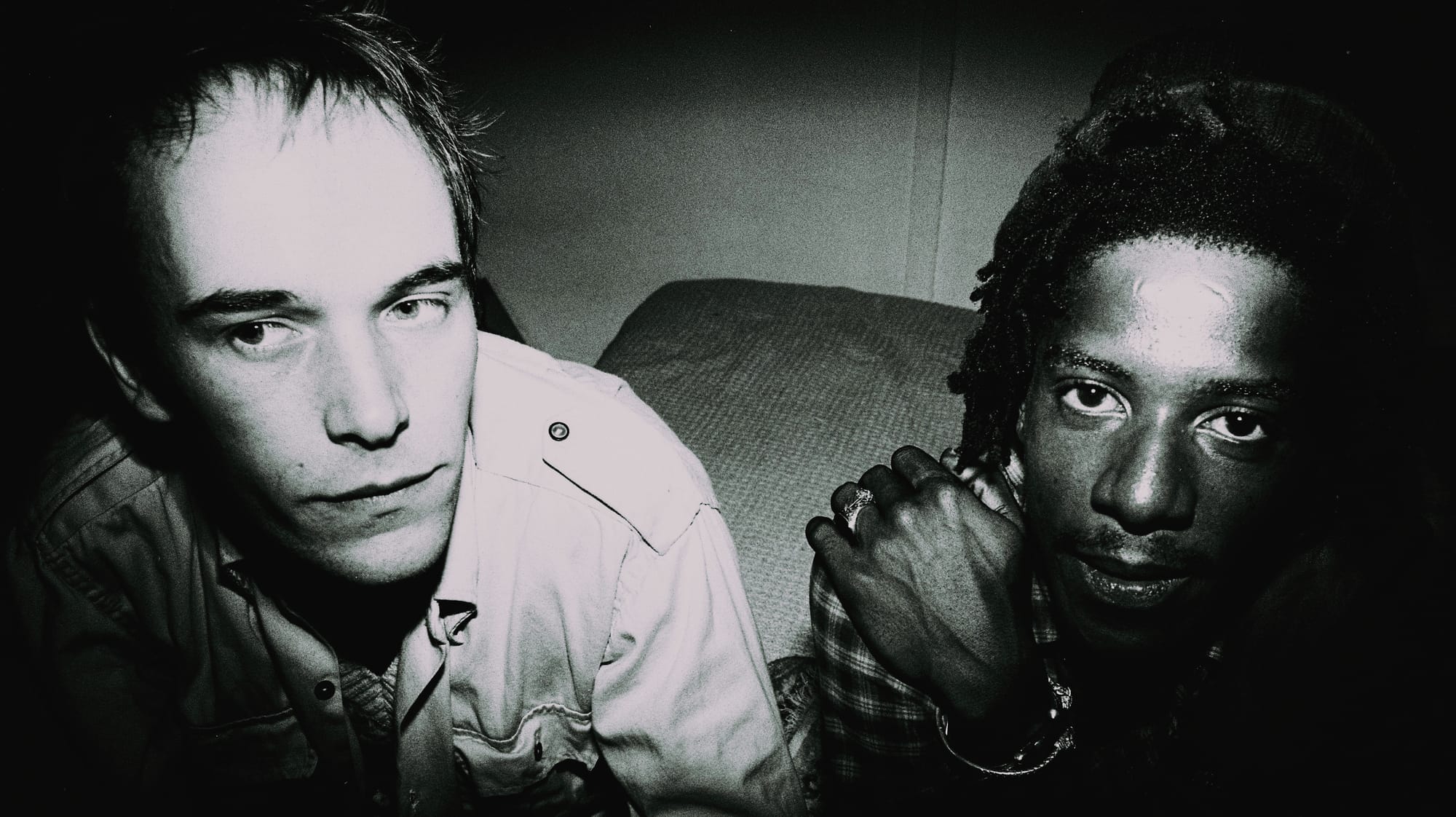
 The TonearmLawrence Peryer
The TonearmLawrence Peryer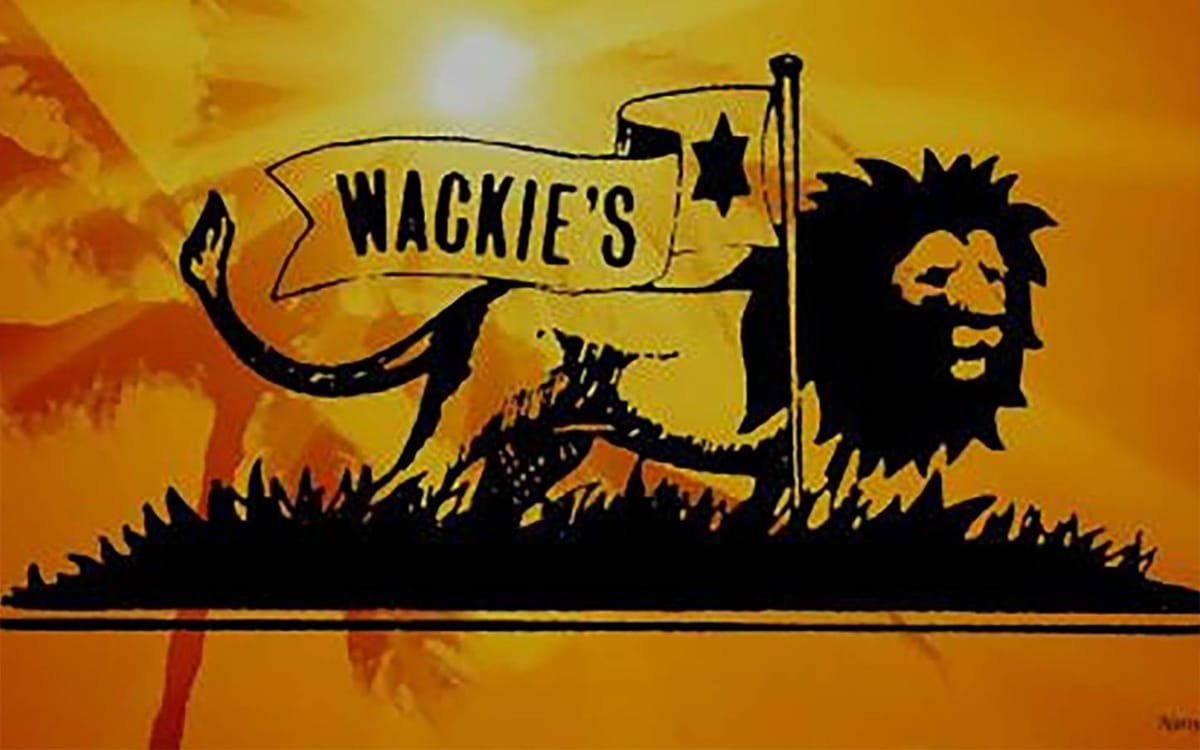


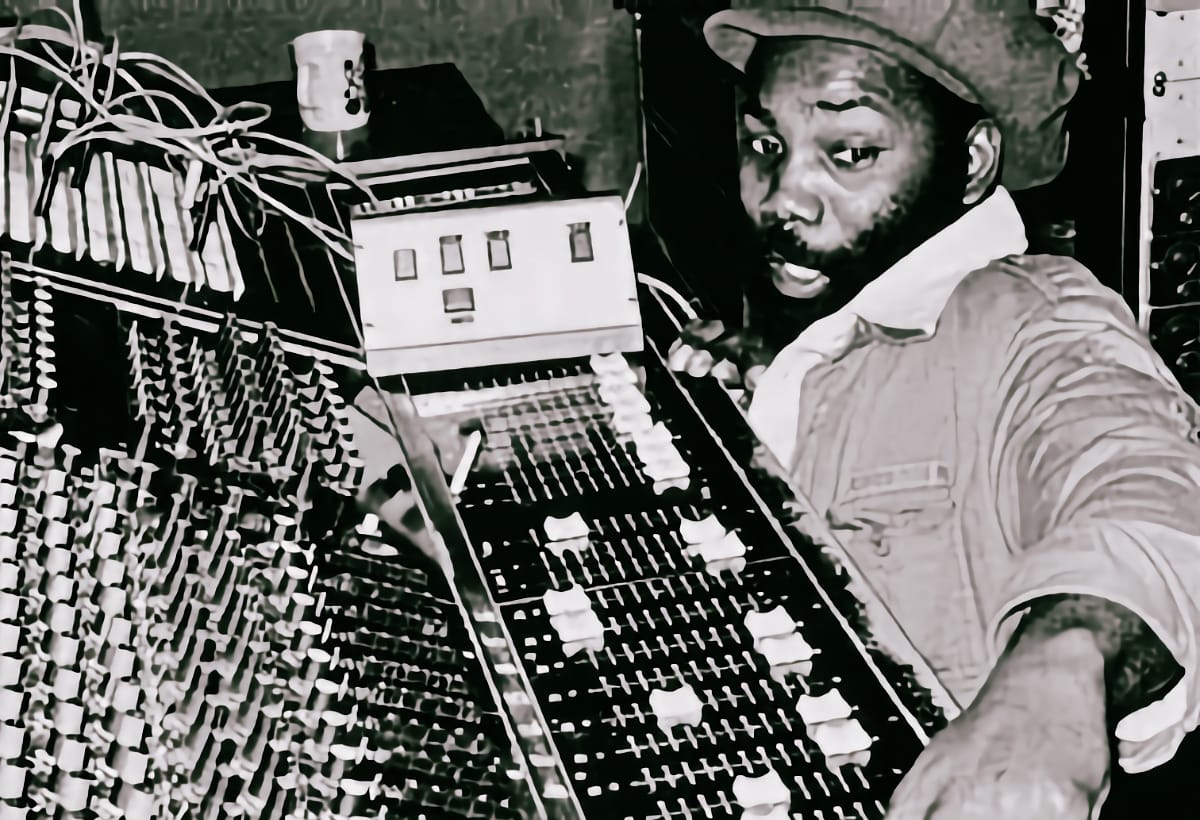




Comments